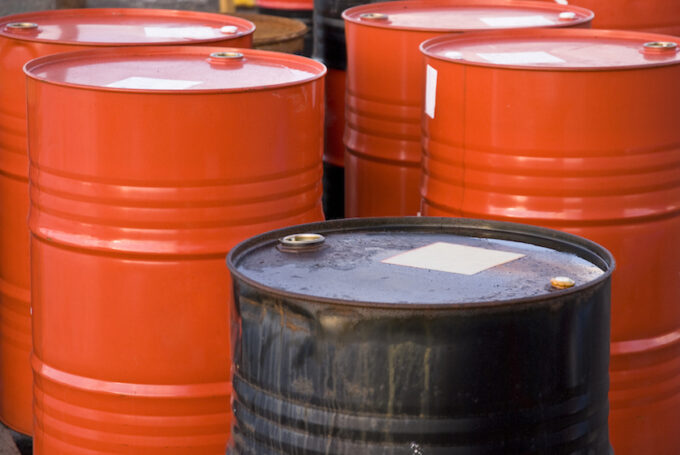There are several things in life that drive the world and to be perfectly honest it is not those that you are thinking about, it is oil and gas.
As silly as it sounds these two things are essential for the world to run properly. Those that don’t know, oil and gas come from ancient fossils hence the name fossil fuels. Oil and fuel get formed over time thanks to the influence of heat and pressure that impacts organisms and plants that die over time and get piled with sediment on top of them. It is a bit scientific but in layman’s terms these are being cooked over a long period of time and as they are being cooked to different degrees and different time-frames they form different types of oil and gas molecules. Oil and gas are a full spectrum where you don’t have just one oil and just one gas, hence the different prices and the way they are formed.
Since we mentioned this and since the topic of the article is to explain the main factors that affect the prices of these two commodities, we will discuss them below. If you want to find out even more about these two head up to sites such as energytracker.asia because they have greatly helped us with this article.
Oil

Img source: dailyfx.com
Crude oil prices differ from region to region and the main differences are in the types and fractions of hydrocarbons they contain. There is also Sulphur concentration and viscosity (the ease with which oil flows) of the crudes is also a thing that makes oils different. These factors combined represent the factors of the quality of the crude oil.
-
Demand and supply
No matter what the contents of the oil are, in what ratios, the biggest thing that impacts the price of the oil is its demand and supply. You can have something sold at a higher price if no one wants it. Also goes for the fact that you can not sell more than you have, at that time the demand is great but your stocks of oil are low and you can easily dictate a lot larger price than it realistically is. The higher the demand with a constant flow of oil means greater price but it can also be even bigger if you have little of it in great demand. The opposite of this would drive the price down without the need of further explaining it.
-
Storage
Now, this ties nicely with what we just stated. If you have storage facilities that can take up much of the oil of the world then you have a chance of waiting out for the shortage and offer it at a much greater price. Having stocks of anything is important because then you can be the one who can dictate the amounts going in or out as well as prices. This is also a double-edged sword because you can turn to stock up as much oil as possible but find yourself in a period when no one wants it or need it. It would be considered a great cost and a waste of space that can’t be reimbursed in a short period.

Img source: fortune.com
-
Geopolitics
Geopolitics has always been a close tie to anything in the world. If the relationships between nations and people are stable and in sync then the prices of all commodities somewhat stagnate or even go lower. Whenever you have a piece of news that a certain superpower has had a word or two with the other one you have times where certain commodities rise in price and you have a potential crisis. Geopolitics is a huge influence on the prices of almost everything and when you know that just one wrong move from any superpower might lead to the prices of everything, including life, jumping sky high and become nearly intolerable. If you recall every problem the US has had with the Middle East resulted in some form of price changed for the barrel of crude oil. This is easy to analyze and see, and frankly, it makes us scared.
Now as all of you know, selling prices of both Brent and WTI are frequently publicized and this is due to fact that the prices serve as the standards for determining the daily prices of practically all other crudes in the world. For now, we will leave aside other price influences and focus on this.
The sale price of crude oil will differ from a market price of a benchmark crude by a quantity that reflects the particular crude’s hydrocarbon content, Sulphur content and viscosity in comparison to the benchmark crude’s specifications. As a result, a crude produced with a greater Sulphur concentration and viscosity than WTI will typically be priced reasonably lower than WTI.
Gas

Img source: pexels.com
When it comes to gas there are benchmark prices for natural gas in the same way just like the benchmark prices for oil. In this case, the benchmark pricing is for processed natural gas delivered to a specific site. These are commonly referred to as natural gas hubs. The price of processed gas sold elsewhere is frequently changed concerning the price of natural gas at the benchmark hub, dependent on the hub and the distance sail point.
Now, these were some factors that are solely tied to the production of gas and oil, but these are not the only ones that are determining the prices of these commodities. The big role has a demand for these as well. It is a simple economic rule that says the greater the demand for a certain commodity the greater the price of it. We have grown our need for oils and gas over the years and that increase in need means an increase in demand and overall higher prices of these commodities. Since these demands will logically increase in the future it is also logical to expect that the prices of these commodities will rise even further.
If there is one thing, we have learned from past oil prices and our present state is that oil and gas prices can also go down. This is tied to the demand of course, and the demand is always lowering when you have a world crisis at hand. The latest one that we have been hit by is this COVID 19 madness that has driven down the prices of oil and gas due to lower demands.
Another thing that can dictate lower prices of these commodities is technological advances that will reduce all costs of producing previously expensive commodities. Another thing to hope for is that our tech will develop even further and make us all step away from exploiting oil and gas reserves and make us look toward alternative means. This is something we can all hope and expect that will happen as soon as the electric car industry takes flight. Without any doubt vehicles are probably the biggest consumer of oil and gas and with fully electric vehicles we can slowly push out gas and petroleum-powered engines and turn our heads to alternative sources of creating energy, like oceans, wind and sun.







